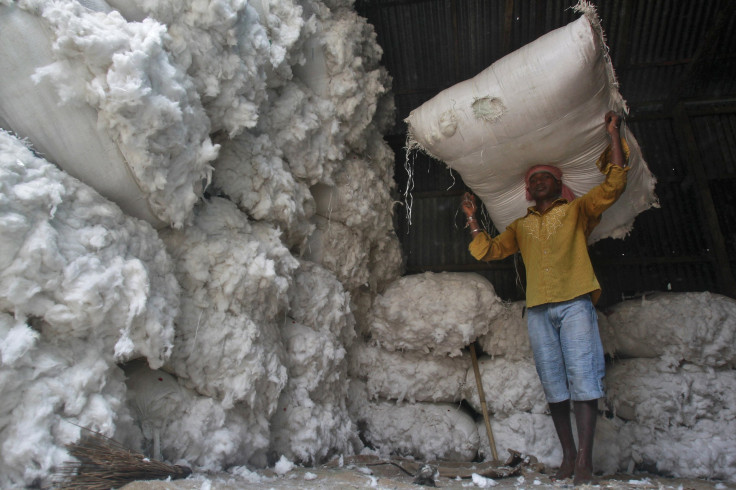Climate Change: Global Clothing Companies Seek Alternatives To Cotton As Future Drought And Extreme Heat Threaten To Hurt Yields

Climate change is threatening to damage the cotton crops we need to make jeans, T-shirts, sweaters and other comfy clothing. So the world’s apparel companies are finding alternatives to the fluffy fiber, in part to insulate themselves from the effects of rising temperatures, prolonged droughts, heavier rainfall and other impacts, NPR’s Morning Edition reported Wednesday.
VF Corp. (NYSE:VFC), which makes Lee and Wrangler jeans, Timberland shoes and The North Face fleece jackets, said it started looking to diversify its raw materials several years ago, after bad weather events in China and Pakistan -- two of the world’s largest cotton growers -- hit the company’s cotton supply. While the crop grows especially well in hot climates, it is extremely sensitive to water. Not enough H20, and cotton chokes at the vine; too much, and its roots rot.
In the coming decades, water scarcity spurred by climate change will likely hit cotton the most in China's Xinjian county, Pakistan, Australia and the western United States, according to the International Trade Center, a joint agency of the World Trade Organization and the United Nations. Extreme heat waves could also harm cotton crops, as will an abundance of insects, which are expected to adapt and thrive in new environmental conditions.
Letitia Webster, VF’s senior director of sustainability, said that the Greensboro, North Carolina-based apparel firm wants to shield itself from those risks -- and protect its bottom line. "We actually do want to diversify; we want to make sure that we are insulated from some of that," she told NPR.
The company is training 400 Chinese farmers to switch to less water-intensive cotton plants. VF is also ramping up its orders of recycled polyester fibers produced by Unifi Manufacturing Inc. (NYSE:UFI), also based in Greensboro. Unifi turns plastic waste from bottles and leftover polyester scraps into a textured, yarn-like string, which the company calls Repreve.
Roger Berrier, Unifi's president and chief operating officer, told NPR that the company struggled at first to sell its high-costing Repreve. Now, however, demand is growing 20 percent a year amid rising consumer interest in recycled goods, volatile cotton prices and increasing interest from alternative-seeking firms like VF.
Webster said that over time, the company hopes that by incorporating cotton substitutes on a massive scale, it can help drive down the costs of newer materials like Repreve and protect the company’s supply chain. “It is all about actually reducing risk, which actually does cost,” she told NPR.
© Copyright IBTimes 2024. All rights reserved.











